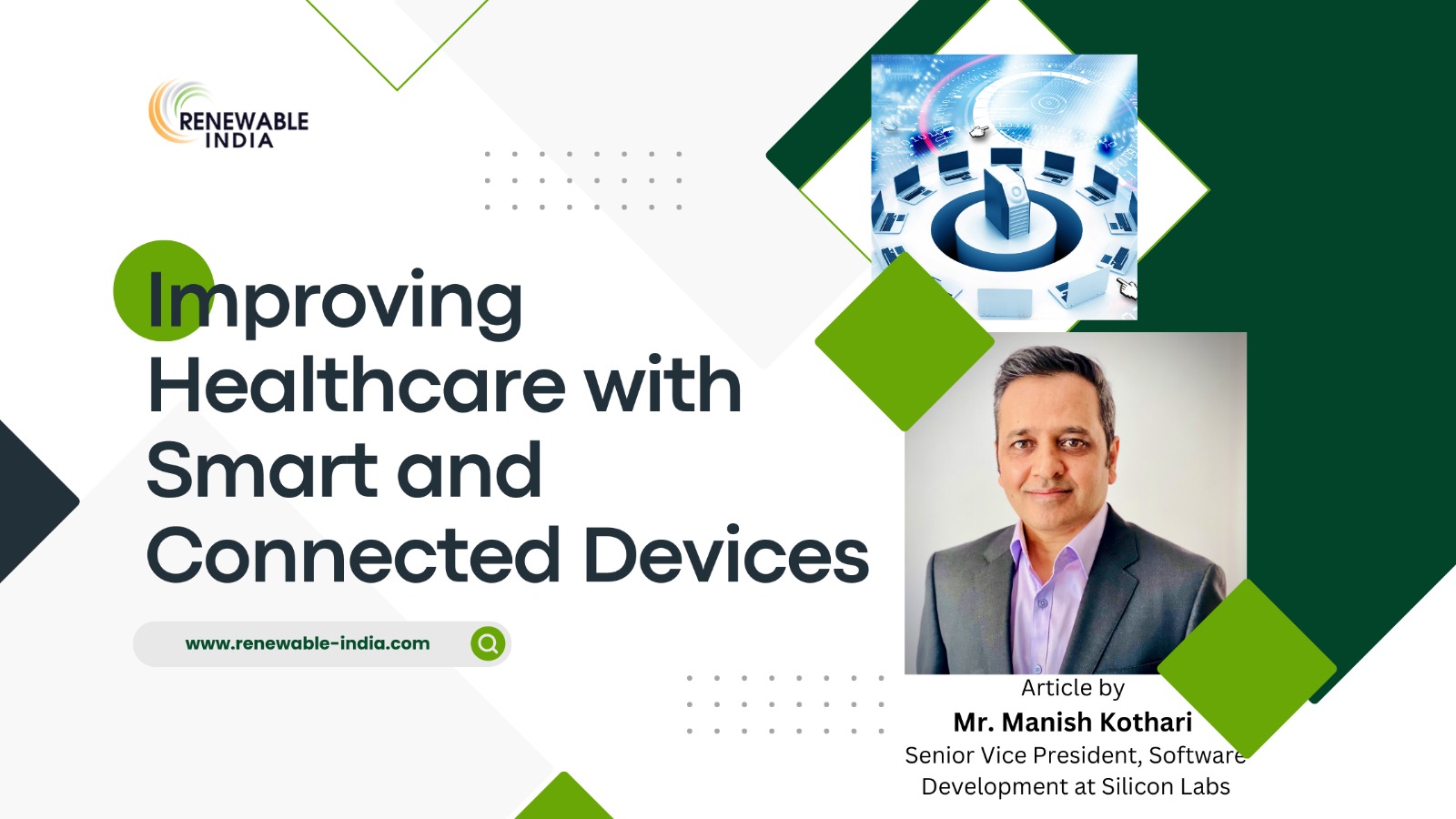
Wireless technologies have been gaining tremendous popularity in the recent past, with 5G being adopted across industries to achieve massive capacities and low latencies. The wireless connectivity market is predicted to reach $294 billion by 2032. Fuelled by rapid digitisation, consumers are fast embracing next-generation wireless communication to maximise their user experience, which also holds true in the healthcare sector. According to a recent study by the Boston Consulting Group (BCG) and B Capital digital healthcare in India will grow tenfold to USD 37 billion by 2030.
Coming off the back of the COVID-19 pandemic, the healthcare industry in India is facing a multitude of challenges including a rapidly aging population, exorbitant healthcare costs and a massive spike in lifestyle-related diseases. Additionally, much of India’s population lacks access to timely, quality healthcare. India has a shortage of an estimated 600,000 doctors and 2 million nurses, falling dismally short of the recommended rate by the World Health Organization ratio of 1:1000 (doctors) and 3:1000 (nurses). However, the advent of next-generation wireless technologies, coupled with the growth of IoT devices and edge computing, is proving to be a game changer. These smart technologies are shifting the needle from a reactive to a proactive approach to healthcare.
For instance, remote patient monitoring or RPM will improve clinical decision-making significantly as medical practitioners can now rely on real-time data and analytics generated by IoT devices, even without in-person consultations. By integrating Artificial Intelligence (AI) into the healthcare sector, we witness better diagnostic accuracy and enhanced treatment outcomes. With RPM, India can extend its healthcare benefits to remote or underserved areas to manage chronic conditions such as heart disease, diabetes, and hypertension better. RPM will reduce the risk of complications and hospital admission, as healthcare professionals will have the advantage of closely monitoring patient condition and stepping in at the right time in case of any warning signs.
Personalised or customised healthcare is fast becoming a reality, with chatbots and virtual healthcare assistants can provide help to patients managing their conditions, increasing patient satisfaction substantially. Diagnostic automation has also reduced the risk of human error while enhancing efficiency and effectiveness. Real-time data can integrate inputs from various devices and with wearable technologies monitoring conditions like stress and anxiety.
As with any new technology, there are challenges to be addressed while using connected devices in healthcare. These include data breaches, privacy concerns, interoperability of devices, and the huge cost of digitization. Connected medical devices could result in cyber breaches, as they collect and transmit sensitive information. This necessitates robust measures to be put in place to protect patient data. As more and more devices are developed, interoperability is another challenge, as they need to work together seamlessly. Data inconsistency and the mammoth volume of data generated are another area that needs attention. India has taken steps towards regulation such as the Personal Data Protection Bill (PDP Bill) of 2019 and the introduction of telemedicine practice guidelines in 2020. The government has proposed the Digital Information Security in Healthcare Act or DISHA, to regulate the generation, collection, access, storage, transmission, and use of Digital Health Data and associated Personally Identifiable Information.
Smart, connected devices are the future, with the potential to revolutionise modern healthcare. New-generation technologies will propel more advancements in the arena of connected devices in healthcare.
Leave a Reply